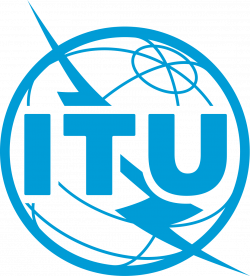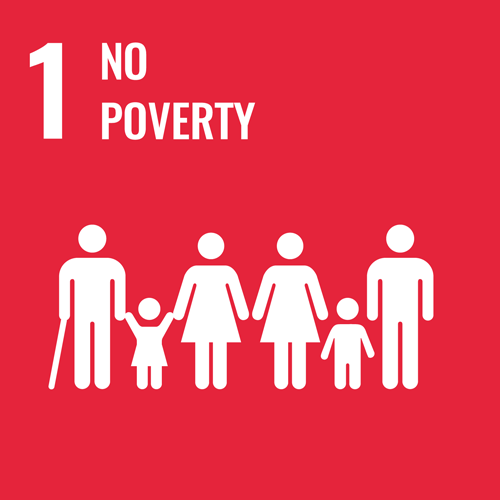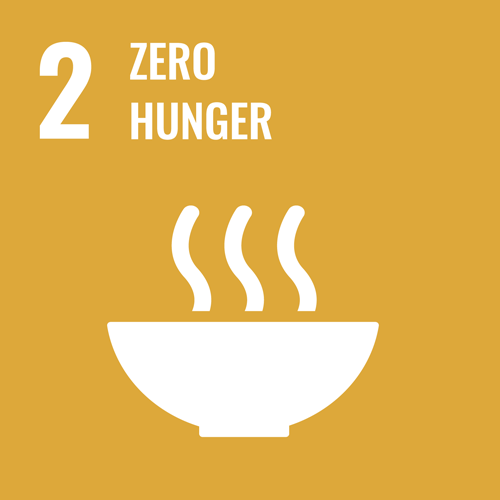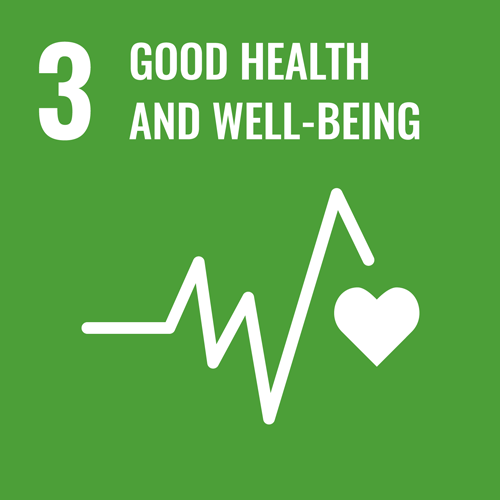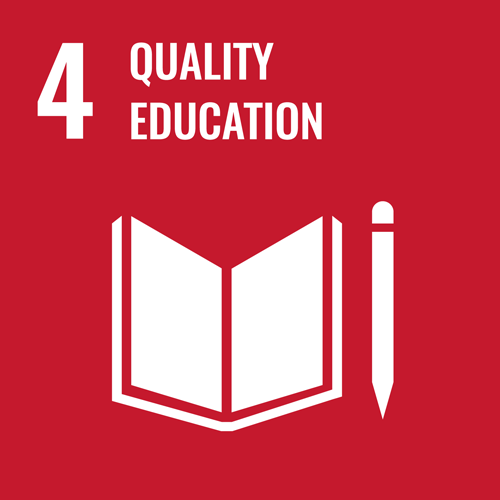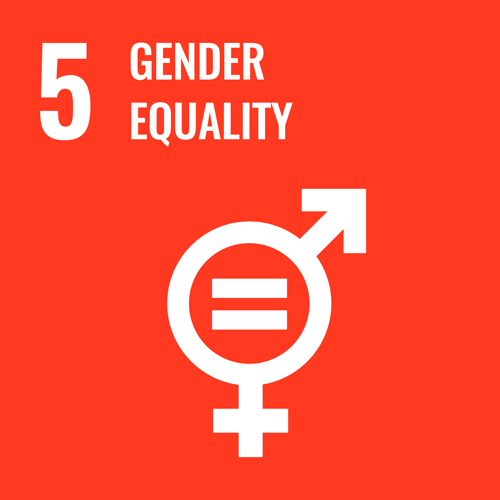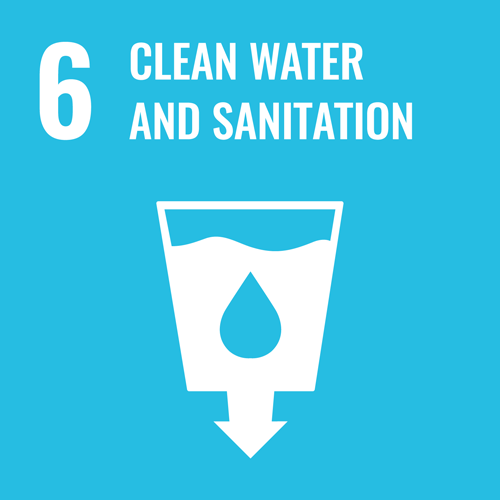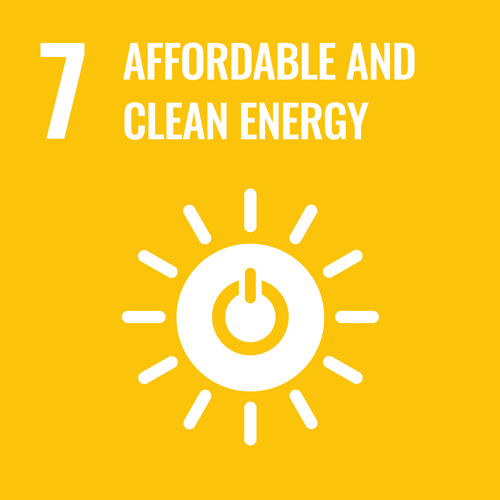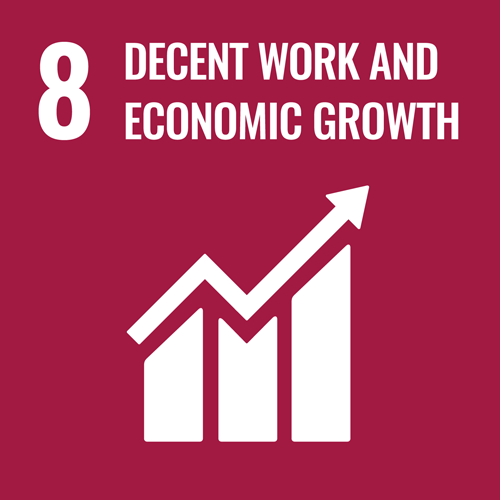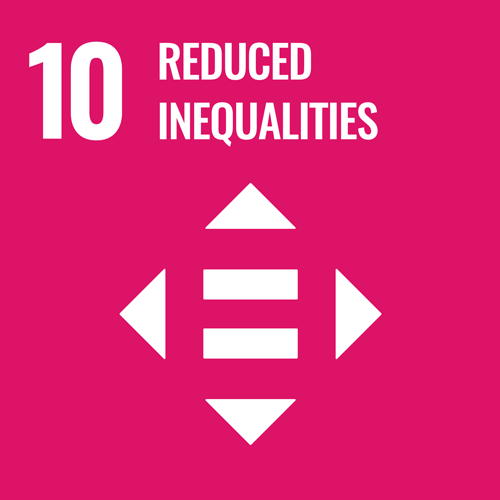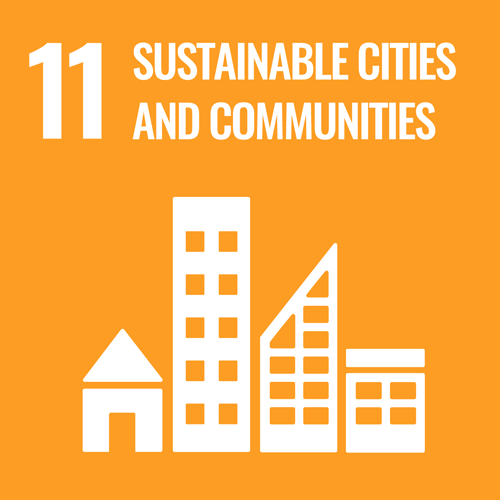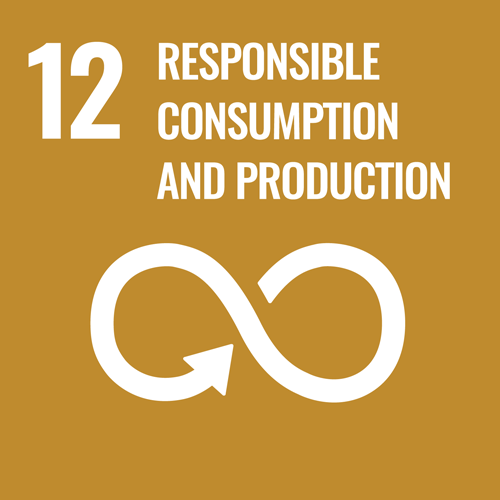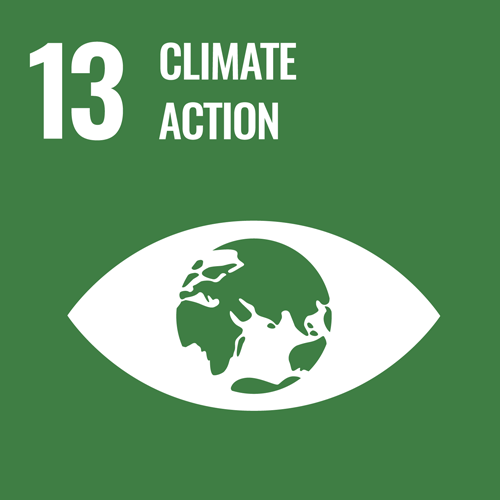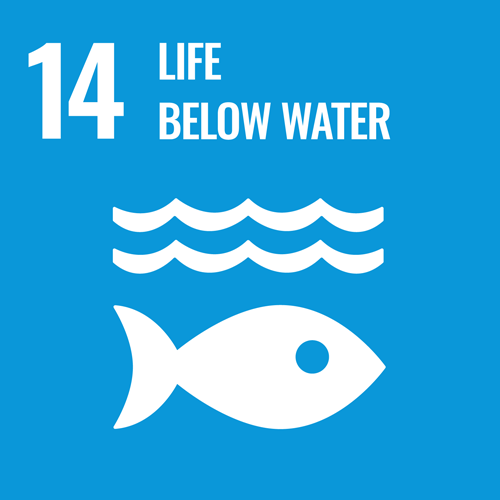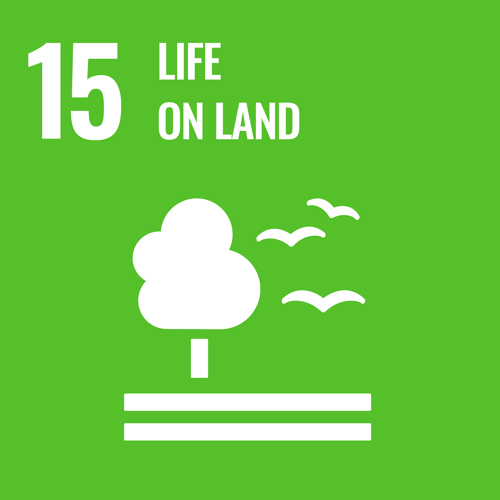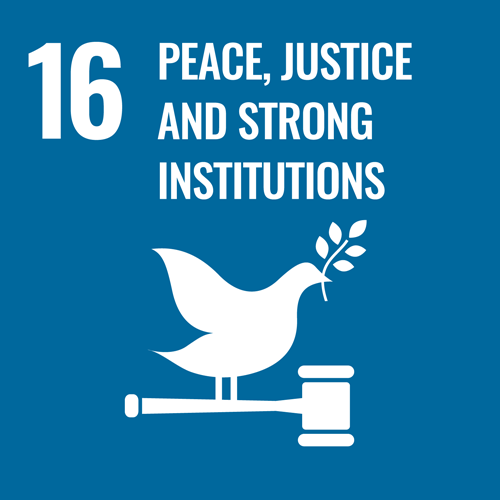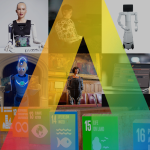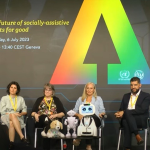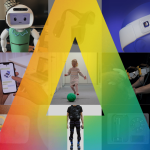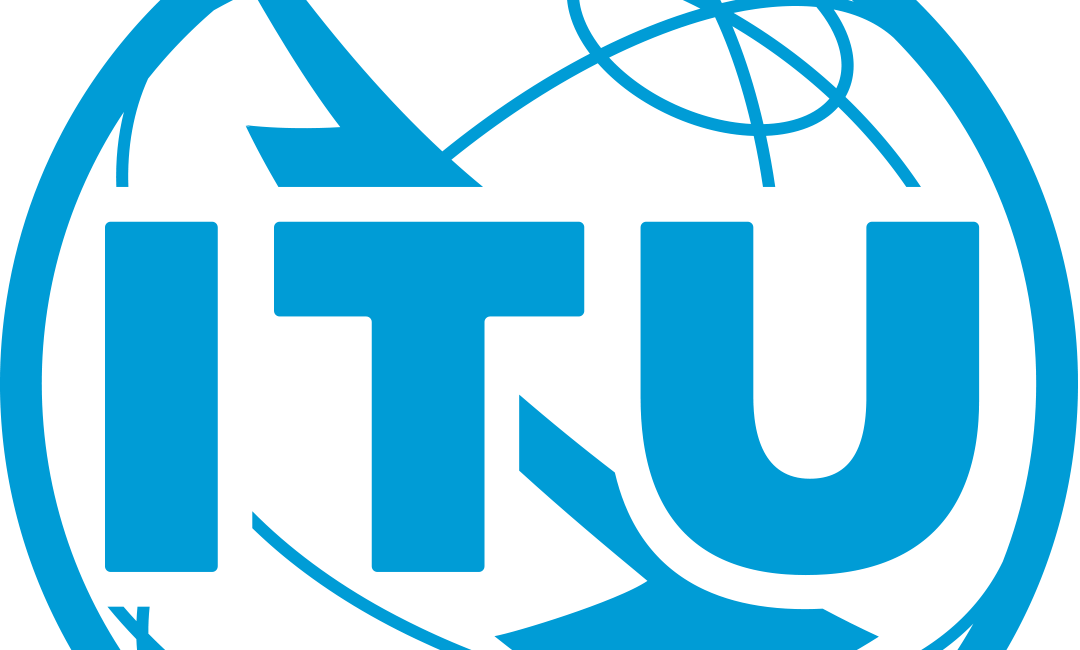
The International Telecommunication Union (ITU) is the United Nations specialized agency for information and communication technologies – ICTs.
Description of Activities on AI
Project 1: AI for Good
AI for Good is the leading action-oriented, global & inclusive United Nations platform on AI. Its goal is to identify practical applications of AI to advance the United Nations Sustainable Development Goals and scale those solutions for global impact.
The “digital bouquet of flowers” has been arranged into three streams (Learn, Build, Connect). For the complete list of service offerings, please visit this page. These service offerings are available for all UN partners to play an active role in moving the needle towards achieving the Sustainable Development Goals.
AI for Good consists of an all year online program which in 2022 broadcast over 160 webinars, and the annual in-person AI for Good Global Summit (which did not take place from 2020 to 2022 due to Covid-19 but which will resume in 2023).
The content of the online AI for Good platform is organized into the following “Discovery channels” (plus some other topics), which comprise of technical talks which dig deeper into thematic areas transformed by Artificial Intelligence/Machine Learning as well as into challenges of current AI/ML technology.
Project 2: UN Activities on Artificial Intelligence
Since 2018, ITU has issued the annual “Compendium of UN Activities on Artificial Intelligence”, aiming to introduce activities being carried out by the UN system. A joint-effort between ITU and 47 UN agencies and bodies, all partners of AI for Good or members of the Interagency Working Group on AI, the 2022 version of the report includes the collection of activity report from 40 UN agencies, providing details on UN agencies experiments with AI to improve their response to global challenges. It also includes additional analysis and summary to provide a comprehensive overview of the trends and tracks within the UN system.
Project 3: Focus Group on Artificial Intelligence for Health (FG-AI4H)
The ITU-WHO Focus Group on Artificial Intelligence for Health (FG-AI4H), driven in close collaboration by ITU and WHO, is working towards the establishment of a framework and associated processes for the performance benchmarking of ‘AI for Health’ algorithms. The group is working on 20+ topic areas (“use cases”) addressing health issues including breast cancer, neurodegenerative diseases, autism, vision loss, skin lesions, cardiovascular diseases, venomous snakebites and many more. An overview article was published in The Lancet – “WHO and ITU establish benchmarking process for artificial intelligence in health” – a weekly peer-reviewed general medical journal which is among the world’s oldest, most prestigious and best known general medical journals. See also the Whitepaper for the ITU/WHO focus Group on Artificial Intelligence for Health.
Project 4: Focus Group on AI for autonomous and assisted driving (FG-AI4AD)
The ITU Focus Group on AI for autonomous and assisted driving (FG-AI4AD) supports standardization activities for services and applications enabled by AI systems in autonomous and assisted driving. FG-AI4AD studied the behavioural evaluation of AI (when it is responsible for the dynamic driving task of a vehicle), in accordance with the 1949 and 1968 Convention on Road Traffic of the UNECE Global Forum for Road Safety.
To build public trust it is fundamental that the performance of AI on our road meets, or exceeds, the performance of a competent and careful human driver. The FG aimed to create international harmonisation on the definition of a minimal performance threshold for these AI systems (such as AI as a Driver). This work has the potential to facilitate adoption of AI on our roads and aims to reducing road injuries, which are already the leading cause of death for children and young adults aged 5–29 years (more so than HIV and tuberculosis). In fact, AI can play a significant role to reduce 1.3 million road deaths and 25 million injuries (SDG 3.6) occurring each year, whilst also encouraging safe, affordable, accessible and sustainable transport systems (SDG 11.2). However, the widespread and socially acceptable deployment of AI on our roads is dependent upon technology achieving public trust. The Focus Group has raised attention from public and private entities and is becoming a popular forum for discussion. The Group concluded its activities in September 2022.
Project 5: Focus Group on Environmental Efficiency for AI and other Emerging Technologies (FG AI4EE)
The ITU Focus Group on Environmental Efficiency for AI and other Emerging Technologies (FG AI4EE) is working to provide guidance on the environmentally efficient operation of emerging technologies. Additionally, this project seeks to study the impact of these technologies on the ecological/environmental feasibility of the broader ICT ecosystem by exploring AI, increasing automation and smart manufacturing. The group’s work also supports ITU’s ongoing research regarding the environmental requirements of IMT-2020 (5G) systems. FG-AI4EE has worked on over 20 deliverables which cover topics related to requirements, assessment, measurement and implementation guidelines concerning the environmental efficiency of AI and other emerging technologies. Participation is open; there are no membership requirements. The Group concluded its work in December 2022.
Project 6: Focus Group AI for Natural Disaster Management (FG-AI4NDM)
The Focus Group on AI for Natural Disaster Management (FG-AI4NDM) capitalizes on the growing interest and novelty of AI in the field of natural disaster management to help lay the groundwork for best practices in the use of AI for: assisting with data collection and handling, improving modelling across spatiotemporal scales, and providing effective communication.
Project 7: AI for Natural Disaster Management
To address the core challenges and opportunities within the agricultural sector, the Focus Group on Artificial Intelligence (AI) and Internet of Things (IoT) for Digital Agriculture (FG-AI4A), explores the potential of emerging technologies including AI and IoT in supporting data acquisition and handling, improving modelling from a growing volume of agricultural and geospatial data, and providing effective communication for interventions related to the optimization of agricultural production processes. The Focus Group will also examine key concepts, and relevant gaps in current standardization landscape related to agriculture, and will underscore the best practices and barriers related to the use of AI and IoT-based technologies within the agricultural domain.
To achieve these objectives, FG-AI4A cooperates closely with FAO converging multiple stakeholders and experts from across the globe, serving as an open platform to explore the potential of AI and IoT to support innovative practices for agricultural production processes.
Project 8: Focus Group on metaverse (FG-MV)
Recently, metaverse has become one disruptive area of innovation with great potential to change our economy, way of living and communicating and society. In this nascent phase of the metaverse, the industry has not converged towards common terms and definitions. The metaverse concept has attracted considerable public attention.
The ITU-T Focus Group on metaverse was established in December 2022. The group analyses the technical requirements of the metaverse to identify fundamental enabling technologies in areas from multimedia and network optimization to digital currencies, Internet of Things, digital twins, and environmental sustainability.
It also provides a collaboration platform for dialogue, for identifying stakeholders with whom ITU-T could collaborate, and for enabling the inclusion of non-members to contribute to the technical pre-standardization work. The Focus Group work will be enriched with the identification of relevant use cases.
To stimulate global dialogue on metaverse, a series of ITU Forum on Embracing the metaverse will be held along with the Focus Group meetings.
Project 9: Global Initiative on AI and Data Commons
The Global Initiative on AI and Data Commons is a program and collaborative platform to support the implementation of beneficial AI based solutions to accelerate progress towards the 2030 Sustainable Development Goals. A Roundtable on the Global Initiative on AI and Data Commons was convened at ITU headquarters on 30-31 January 2020, attended by around 100 participants (including AI specialists, data owners, and infrastructure providers from the private sector, academia, governments, UN agencies and standards bodies).
Project 10: AI/ML Competitions (“Challenges”)
Since 2020, thousands of students and professionals are competing in the ITU AI/Machine Learning Challenges. In 2022, The ITU AI/ML Challenges were hosted in three(3) main themes: AI/ML in 5G Challenge, GeoAI Challenge, and tinyML Challenge. Through the Challenge, ITU encourages and supports the growing community driving the integration of AI/ML in networks and at the same time enhances the community driving standardization work for AI/ML, creating new opportunities for industry and academia to influence the evolution of ITU standards. Participants attempt to address the UN Sustainable Development Goals (SDGs) related problems using real-world data. In addition, participants will acquire hands-on experience in AI/ML in areas relevant to solving SDGs and compete for prizes, recognition, and certificates. These Challenges offer participants an opportunity to showcase their talent, test their concepts on real data and real-world problems. Participants are offered free computing resources (GPUs!) from ITU to train and optimize their machine learning models. The solutions can be accessed in several repositories on the Challenge GitHub: https://github.com/ITU-AI-ML-in-5G-Challenge.
Most of the solutions submitted to the Challenge are innovative as well as improvements with respect to the baselines. To share the solutions with the larger community, every-year, ITU issues a call for papers for a special issue on AI and machine learning solutions in 5G and future networks of the ITU Journal on Future and Evolving Technologies (ITU J-FET). In this special issue, hosts (i.e., the originators of the problem statements) and participants of the ITU Challenge submit their solutions and learnings for publication. This special issue is dedicated to exploration of Artificial Intelligence and Machine Learning in 5G and future networks as well as enabling technologies and tools in networks.
Project 11: United for Smart Sustainable Cities (U4SSC)
The United for Smart Sustainable Cities (U4SSC) is a global UN initiative coordinated by ITU, UNECE and UN-HABITAT. It currently involves 19 UN bodies. U4SSC is a global platform for smart cities stakeholders, which advocates for public policies to encourage the use of ICT to facilitate the transition to smart sustainable cities. The initiative aims to: Generate guidelines, policies and frameworks for the integration of ICTs and emerging technologies into urban operations, based on the SDGs, international standards and urban key performance indicators (KPIs); and help streamline smart sustainable cities action plans and establish best practices with feasible targets that urban development stakeholders are encouraged to meet. The topics of this phase of U4SSC include: city platforms, urban economic resilience at the city-level, innovative financing for smart and sustainable cities, procurement guidelines for smart cities, artificial intelligence in cities, metaverse in cities, digital transformation for people-oriented cities. In the context of the Thematic Group on AI in Cities, a deliverable is being developed to explore how AI-based innovations be effectively deployed in the urban domain, while laying forth a framework which encompasses the governance principles for successfully implementing AI in cities in line with the Sustainable Development Goals (SDGs) The initiative delivers policy guidelines and training materials through the work on specific outputs elaborated via regular e-meetings and one main meeting once per year. U4SSC stakeholders also elaborated a set of Key Performance Indicators (KPIs) for smart sustainable cities which includes 91 indicators (core and advanced) divided in the three dimensions of sustainable development: economy, environment, and society and culture. The indicators are fully aligned with the Sustainable Development Goals (SDGs) and serve as a tool for evidence-based decision making, self-assessments, progress monitoring and achieving the SDGs at the local-level. They are being implemented by 150 cities of different sizes and development worldwide.
Project 12: Digital Transformation Webinar Series
Together with other United Nations agencies and programmes, ITU has been regularly organizing Webinars to explore the transcending impact of digital transformation across sectors to drive innovation, ensure sustainable growth and inclusion and respond to other global challenges.
With over 20 Episodes, these webinars discuss topics related to cross-sectoral digital transformation, with aim of increasing collaboration with global stakeholders and knowledge-sharing, contributing to ITU-T standardization activities in accordance with the New Urban Agenda and the Sustainable Development Goals.
The webinar series also helps showcase the activities of the ITU-T Study Groups, including ITU-T Study Group 20 on “Internet of things (IoT) and smart cities and communities (SC&C)”.
Project 13: AI in radiocommunications
AI could be used during the process of making and distributing television and radio content. It is now being used to optimise workflows for broadcasting programme making, to improve audio and visual quality evaluation, to efficiently utilize the frequency spectrum in television and radio distribution and recently even to create new programmes by mining archives as well as automatically targeting content to specific audiences or individuals.
For example, AI is being used for extracting content from vast archives; automatically localising content for international distribution; and generating access services such as captioning, audio description, text to speech and signing far faster and far more accurately than could be achieved in the past.
AI could be used for spectrum management and radio monitoring activities.
For example, deploying machine learning technology for methodologies for assessing or predicting spectrum availability; introducing big data processing and other AI technologies in the automation of spectrum management and radio monitoring activities.

